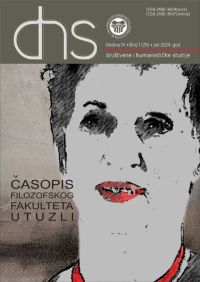Percepcija verbalne i neverbalne komunikacije u online nastavi studenata žurnalistike/komunikologije u Bosni i Hercegovini
Perception of Verbal and Non-Verbal Communication in Online Classes of Journalism/Communicology Students in Bosnia and Herzegovina
Author(s): Zarfa Hrnjić Kuduzović, Amela Delić Aščić, Tahani KomaricaSubject(s): Communication studies, Distance learning / e-learning
Published by: Filozofski fakultet Univerziteta u Tuzli
Keywords: online class; interaction; social presence; student satisfaction;
Summary/Abstract: The interaction between students and lecturers in online classes has changed significantly compared to the interaction in conventional classroom classes. Physical distancing harmed cognitive and social presence in classes due to reduced opportunities for interaction, immediate feedback, and the use of non-verbal communication tools to encourage students to participate in class. The study aims to determine how journalism/communication students in B&H perceive interaction with lecturers in online classes, which is an important element of their cognitive and social presence. A face-to-face survey questionnaire showed that students prefer classroom teaching and that they consider the impossibility of face-to-face communication to be one of the key disadvantages of online teaching. Students are not willing to engage more significantly in online classes, and virtual classrooms they prefer written to oral communication. In online classes, students perceive lecturers as less real. Elements that improve the realization of cognitive and social presence in online classes are an intensification of verbal and non-verbal elements of communication, the use of emoticons, appropriate humor, and personal experiences that contribute to better interaction, a more pleasant teaching atmosphere, and greater concentration on work.
Journal: DHS-Društvene i humanističke studije: časopis Filozofskog fakulteta u Tuzli
- Issue Year: XV/2024
- Issue No: 25
- Page Range: 963-992
- Page Count: 30
- Language: Bosnian

